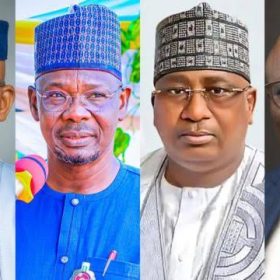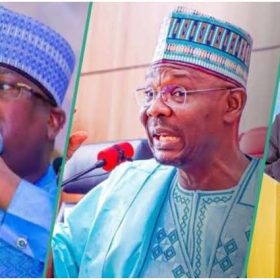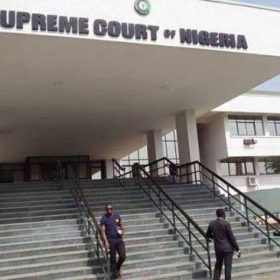Call for Electoral Act reform ahead of 2027 polls following Supreme Court judgments

Concerns have been raised by political observers regarding Nigeria’s electoral process following significant judicial interventions in the outcome of the 2023 general elections.
As a result, there is a growing call for a review of certain sections of the Electoral Act of 2022.
The Supreme Court played a pivotal role in determining the results of at least 15 governorship elections and the closely contested presidential poll. This has raised worries about the state of Nigeria’s democracy among many citizens. Interestingly, while a considerable number of Nigerians express dissatisfaction with the overall conduct of the elections, the Independent National Electoral Commission (INEC) has portrayed the court’s verdicts as validation of its performance, giving itself a positive assessment.
During a meeting with political party leaders on December 18, 2023, INEC Chairman Prof. Mahmood Yakubu revealed that the courts had ordered rerun elections in 34 constituencies, comprising one senatorial district, 11 federal constituencies, and 22 state constituencies. These rerun elections account for only 2.8% of the 1,191 petitions filed by litigants after the general elections. Notably, out of the 34 rerun elections, INEC was instructed to conduct elections in an entire constituency in only three cases, while in the remaining 31 constituencies, elections were to be held in a few polling units.
The underlying message is clear: if litigation were to serve as a referendum on INEC’s performance, the electoral body could confidently claim to have performed excellently and would not need to consider further improvements. This viewpoint was echoed by the youth wing of Ohanaeze Ndigbo, the apex Igbo socio-cultural organization, which recently stated that the decisions of both the Supreme Court and the Court of Appeal regarding the 2023 general elections have vindicated INEC.
However, upon closer inspection, this assertion appears far from accurate. With the Supreme Court upholding the victories of all the governors in the majority of the cases brought before it, judgments were delivered on appeals challenging the outcomes of governorship elections in Gombe, Kebbi, Ogun, Kaduna, Nasarawa, and Delta states on January 19, 2024. Prior to this, the apex court had already decided the fate of ten state governors, including those from Benue, Abia, Zamfara, Lagos, Bauchi, Cross River, Ebonyi, Kano, Akwa Ibom, and Plateau. Despite public outcry over alleged electoral fraud and flaws in many states, no governor was removed from office in any of the cases that were decided.
Nigerians demand Electoral Act reform ahead of 2027 polls following Supreme Court judgments
Following the conclusion of the 2023 general elections and concerns raised about the effectiveness of the Bimodal Voter Accreditation System (BVAS) and Election Result Viewing Portal (IREV), Nigerians are calling for a comprehensive reform of the Electoral Act in preparation for the 2027 polls.
The technologies implemented during the 2023 elections, aimed at curbing over-voting, were deemed ineffective as many polling units still reported instances of over-voting, leading to calls for the cancellation of results.
Civil society organizations (CSOs) such as Yiaga Africa and the Nigerian Civil Society Situation Room expressed disappointment with the electoral process, emphasizing the need for reforms to enhance electoral integrity and restore public confidence in the Independent National Electoral Commission (INEC).
The European Mission Election Observation also highlighted the lack of transparency and inclusivity in the 2023 elections, further eroding public confidence in INEC.
To address these concerns, political scholars are urging a review of the Electoral Act 2022, particularly Section 135(1), which sets a high threshold for nullifying elections due to non-compliance.
Critics argue that this provision allows for significant fraud and flaws to go unpunished, undermining the credibility of future elections. They emphasize the importance of amending the section to ensure stricter adherence to electoral guidelines.
INEC has stated its commitment to an open-door policy, engaging stakeholders in post-election reviews and considering recommendations for improvement. However, experts believe that the process of amending the Electoral Act should involve not just the National Assembly but also citizens and the election management body.
Areas of ambiguity in the existing act, such as transfer versus transmission of election results, the use of electronic voting, early voting, diaspora voting, and the duration of voting hours, should be addressed administratively or through legal reforms to provide clarity and certainty in the electoral process.















